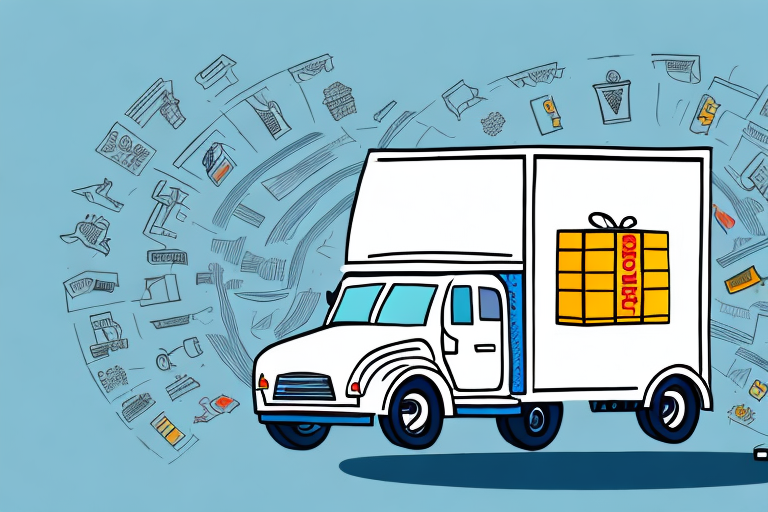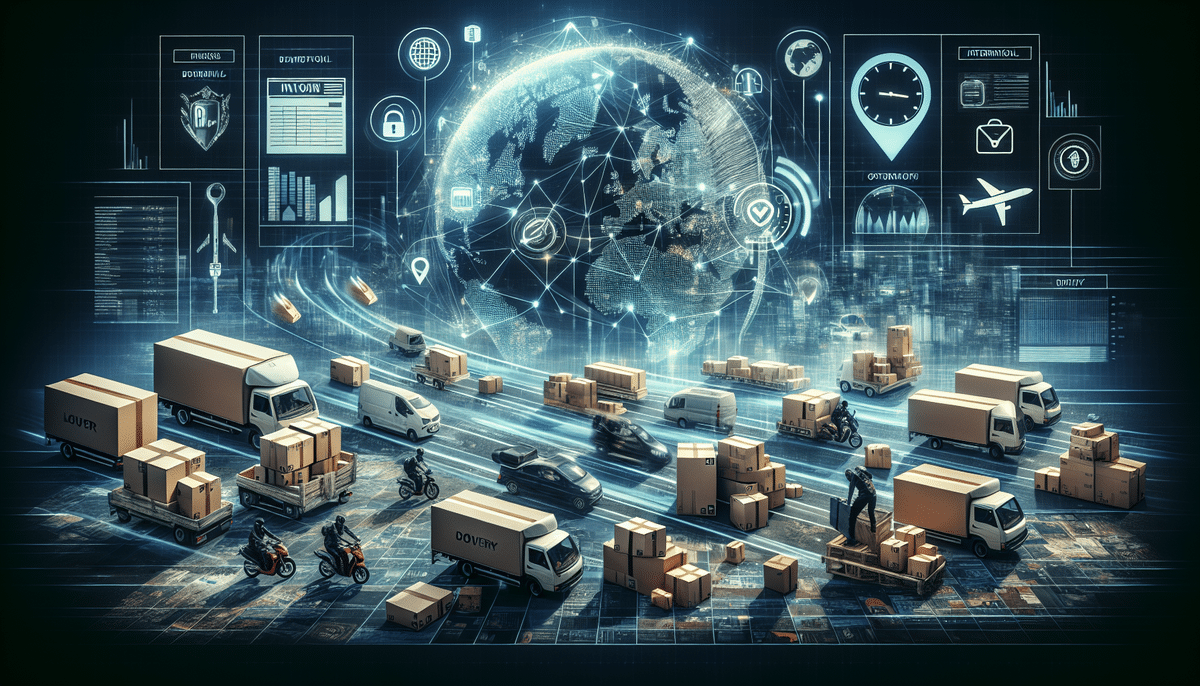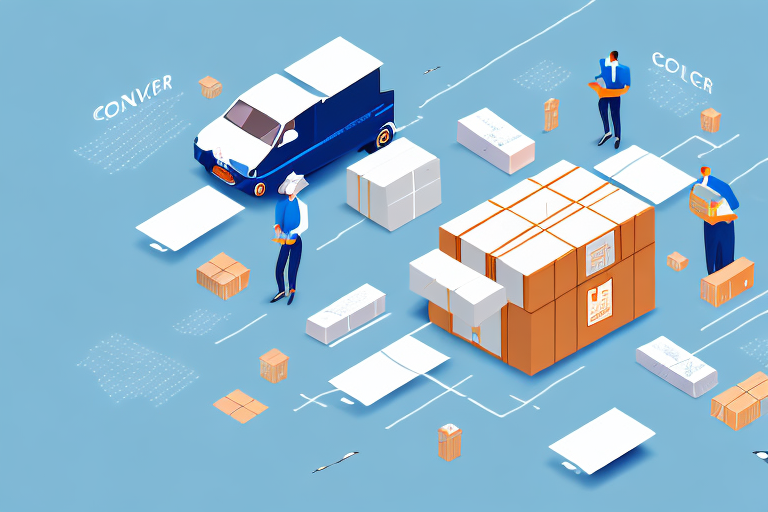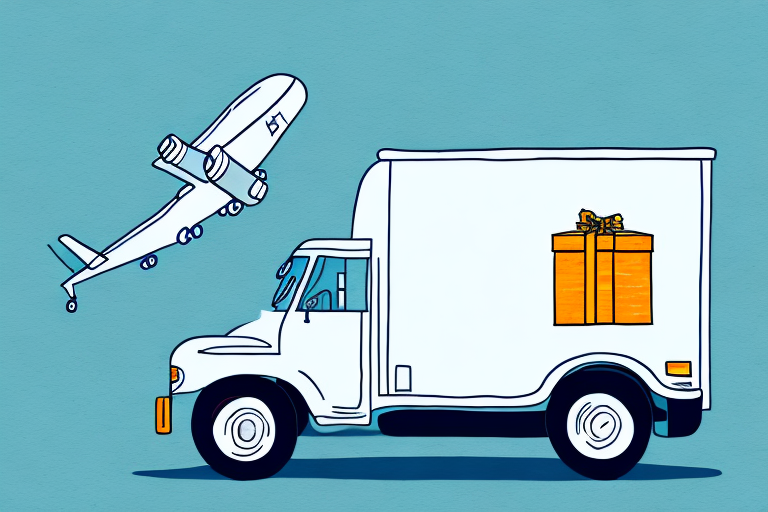What Is Carrier Delivery? A Comprehensive Guide
In today's world, where online shopping and e-commerce are increasingly popular, carrier delivery is an essential component in transporting goods from businesses to consumers. Carrier delivery refers to the process of moving products from one location to another using courier services or shipping companies. This comprehensive guide delves into the intricacies of carrier delivery, including its benefits, challenges, and operational mechanisms.
The Evolution of Carrier Delivery
Carrier delivery has been a crucial aspect of commerce for centuries, evolving significantly with advancements in technology. Historically, goods were transported by horse-drawn carriages and ships, limiting the speed and range of deliveries. The invention of the automobile revolutionized the industry, enabling faster and more efficient deliveries over greater distances.
The introduction of air freight further transformed carrier delivery, allowing for rapid global transportation of goods. Today, the rise of e-commerce has exponentially increased the demand for carrier delivery services. Companies are investing in cutting-edge technologies such as drones and autonomous vehicles to enhance delivery speed and efficiency. Additionally, the adoption of electric and hybrid vehicles is making carrier delivery services more environmentally sustainable by reducing carbon emissions.
How Carrier Delivery Works: Processes and Technology
Carrier delivery companies operate by collecting products from businesses and transporting them to their destinations. The process begins when a customer places an order through an online store or an e-commerce platform. The business then packages the product and hands it over to the carrier delivery service, which ensures the item reaches the customer's doorstep, office, or designated delivery spot.
The carrier delivery process involves several key steps:
- Order Processing: Receiving and verifying customer orders.
- Packaging: Ensuring products are securely packaged for transit.
- Shipment Collection: Picking up packages from the business location.
- Transportation: Moving packages via ground, air, or sea.
- Tracking: Monitoring package status in real-time.
- Delivery: Final delivery to the customer.
Advanced technologies like GPS tracking, real-time traffic updates, and predictive analytics play a vital role in optimizing delivery routes, managing inventory, and ensuring timely deliveries. These technologies help carriers navigate challenges such as traffic congestion, weather disruptions, and unexpected delays, thereby improving overall efficiency and customer satisfaction.
The Benefits of Carrier Delivery for Businesses and Consumers
Carrier delivery services offer numerous advantages for both businesses and consumers:
For Businesses
- Expanded Reach: Ability to deliver products to a broader geographical area, increasing market potential.
- Scalability: Easily scale operations to handle varying order volumes without significant infrastructure investment.
- Customer Satisfaction: Reliable and timely deliveries enhance customer trust and loyalty.
- Operational Efficiency: Streamlined logistics reduce overhead costs and improve overall business operations.
For Consumers
- Convenience: Receive products directly to their doorstep without the need to visit physical stores.
- Flexible Delivery Options: Choose from various delivery speeds and scheduling options to suit their needs.
- Real-Time Tracking: Monitor the progress of their deliveries in real-time, providing transparency and peace of mind.
- Enhanced Accessibility: Access a wider range of products from different businesses, often unavailable locally.
According to a Statista report, global e-commerce sales are projected to reach $6.54 trillion by 2023, underscoring the critical role of carrier delivery services in supporting this growth.
Types of Carrier Delivery Services Available
Carrier delivery services can be categorized into several types based on the mode of transportation and speed:
Ground Delivery
Ground services are typically the most economical option for delivering goods within a specified timeframe. They are ideal for non-urgent deliveries and offer reliable service across various distances.
Air Delivery
Air delivery is the fastest option, suitable for urgent or high-value shipments that need to reach their destination quickly. While more expensive than ground services, air delivery ensures rapid transit over long distances.
Sea Freight
Sea freight delivery is an economical choice for transporting large volumes of goods to international destinations. It is commonly used for bulk shipments and products that are not time-sensitive.
Additional Services
- Express Delivery: Offers expedited shipping for urgent deliveries.
- Same-Day Delivery: Ensures products are delivered within the same day of ordering.
- International Shipping: Facilitates cross-border deliveries with customs clearance support.
- Package Tracking: Provides real-time updates on the status and location of shipments.
- Insurance: Protects against loss or damage during transit, offering added security.
Choosing the appropriate type of delivery service depends on factors such as delivery speed requirements, budget constraints, and the nature of the goods being transported.
Choosing the Right Carrier Delivery Service: Key Factors
Selecting the best carrier delivery service for your business involves assessing several critical factors:
Reputation and Reliability
Partner with carriers that have a proven track record of reliability and safety. Research customer reviews and industry ratings to gauge the carrier's performance and reputation.
Delivery Timeframes
Consider the carrier's ability to meet your delivery timelines. Ensure they offer delivery options that align with your business needs, whether it's same-day delivery, overnight shipping, or standard delivery.
Cost of Delivery
Evaluate the cost implications of different carrier services. While cheaper options may reduce expenses, it's essential to balance cost with reliability and delivery speed to ensure customer satisfaction.
Customer Service
A carrier that offers excellent customer service can significantly enhance the delivery experience. Look for carriers that provide responsive support, easy communication channels, and comprehensive tracking tools.
Technology Integration
Choose carriers that utilize advanced technologies for tracking, route optimization, and inventory management. Integration with your existing systems can streamline operations and improve efficiency.
Insurance and Liability
Ensure that the carrier provides adequate insurance coverage to protect against potential losses or damages during transit. This is particularly important for high-value or fragile items.
By carefully considering these factors, businesses can select a carrier delivery service that best fits their operational requirements and enhances overall customer satisfaction.
Challenges in Carrier Delivery and Solutions
Despite its critical role, carrier delivery faces several challenges that can impact efficiency and customer satisfaction:
Timely Deliveries
Ensuring packages are delivered on time is a significant challenge. Factors such as traffic congestion, weather conditions, and operational inefficiencies can cause delays. To address this, carriers employ advanced route optimization software and real-time traffic monitoring to enhance delivery punctuality.
Package Security
Package theft and loss are common concerns in carrier delivery. Utilizing tamper-proof packaging, implementing secure delivery protocols, and offering insurance options can mitigate these risks.
Global Logistics
International deliveries involve navigating customs regulations, language barriers, and varying infrastructure standards. Collaborating with experienced carriers and utilizing comprehensive customs management systems can streamline global logistics.
Technological Integration
Integrating carrier technologies with business systems can be complex. Investing in scalable and compatible software solutions ensures seamless operations and accurate tracking.
Environmental Impact
The environmental footprint of carrier delivery is a growing concern. Adopting eco-friendly practices, such as using electric vehicles and optimizing delivery routes to reduce fuel consumption, helps address sustainability challenges.
By proactively addressing these challenges through strategic planning and technological investments, carrier delivery companies can enhance their service quality and reliability.
The Future of Carrier Delivery: Trends and Innovations
The carrier delivery industry is continually evolving, driven by technological advancements and changing consumer expectations. Key trends shaping the future of carrier delivery include:
Automation and Robotics
Automation technologies, including drones and autonomous delivery vehicles, are revolutionizing last-mile delivery. These innovations aim to reduce delivery times, lower costs, and improve accessibility, especially in urban areas.
Artificial Intelligence and Machine Learning
AI and machine learning algorithms are being used to optimize delivery routes, predict demand, and enhance inventory management. These technologies enable carriers to make data-driven decisions, improving efficiency and reducing operational costs.
Eco-Friendly Delivery Solutions
With increasing emphasis on sustainability, carriers are adopting eco-friendly delivery methods. This includes the use of electric and hybrid vehicles, bicycle couriers, and sustainable packaging materials to minimize environmental impact.
Blockchain for Transparency
Blockchain technology offers enhanced transparency and security in carrier delivery. It enables immutable tracking of shipments, reducing the risk of fraud and ensuring data integrity throughout the delivery process.
Same-Day and Instant Deliveries
Consumer demand for faster deliveries is driving the growth of same-day and instant delivery services. Carriers are expanding their infrastructure and optimizing logistics to meet these expectations.
According to a McKinsey report, the integration of these technologies is expected to significantly enhance the efficiency and reliability of carrier delivery services in the coming years.
Legal Concerns with Carrier Delivery: Regulations and Liability
Carrier delivery services must navigate a complex landscape of legal regulations and liability issues, particularly when handling international shipments. Key legal considerations include:
Liability for Lost or Damaged Packages
Carriers are typically held liable for lost or damaged packages during transit. It's crucial for businesses to understand the terms of carrier liability and ensure adequate insurance coverage to protect against potential claims.
Customs Regulations
International deliveries must comply with customs regulations, including import/export restrictions, documentation requirements, and taxation laws. Failure to adhere to these regulations can result in delays, fines, or seizure of goods.
Data Protection and Privacy
With the integration of advanced tracking technologies, carriers must ensure compliance with data protection laws such as the General Data Protection Regulation (GDPR) in the European Union. This includes safeguarding customer information and maintaining transparent data usage policies.
Employment Laws
Carrier delivery companies must adhere to employment laws related to labor practices, worker safety, and compensation. This is especially pertinent with the rise of gig economy models and the use of independent contractors for delivery services.
To mitigate legal risks, businesses should work with carrier delivery services that prioritize compliance and have robust legal frameworks in place. Consulting with legal experts and staying informed about regulatory changes can also help navigate the complexities of carrier delivery laws.
Case Studies: Success Stories of Businesses Leveraging Carrier Delivery
Successful businesses often leverage carrier delivery services to enhance their operations and customer satisfaction. Here are a few notable examples:
Amazon
Amazon has revolutionized the e-commerce industry with its robust carrier delivery network. By investing in its logistics infrastructure, including warehouses, delivery vehicles, and partnerships with carriers, Amazon offers services like Prime Delivery and Amazon Fresh, ensuring fast and reliable deliveries worldwide. According to their sustainability report, Amazon is also committed to reducing its carbon footprint through initiatives like electric delivery vehicles.
Zappos
Zappos built its brand on exceptional customer service, including fast and efficient carrier deliveries. Their focus on reliable delivery times and easy returns has fostered strong customer loyalty and contributed to their reputation as a customer-centric company.
Shopify Merchants
Many Shopify merchants utilize carrier delivery services to streamline their order fulfillment processes. By integrating with carriers for real-time tracking and automated shipping solutions, these businesses can offer seamless delivery experiences to their customers, enhancing overall satisfaction and repeat business.
These case studies illustrate the pivotal role carrier delivery services play in driving business success and customer loyalty.
Conclusion
Carrier delivery is a fundamental component in the modern commerce ecosystem, enabling businesses to deliver products to customers swiftly and efficiently. It offers numerous benefits, including expanded market reach, enhanced customer satisfaction, and operational efficiency for businesses, while providing convenience and flexibility for consumers.
Choosing the right carrier delivery service involves careful consideration of factors such as reliability, cost, technology integration, and customer service. Addressing challenges like timely deliveries, package security, and environmental impact is essential for maintaining high service standards.
As the industry continues to evolve with technological advancements and shifting consumer demands, carrier delivery services will remain integral to the success of e-commerce and brick-and-mortar businesses alike. By staying informed about emerging trends and leveraging innovative solutions, businesses can optimize their delivery operations, enhance customer experiences, and drive growth.








